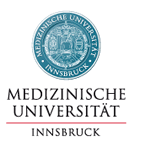About the Project
For virtually all organisms iron is essential, but toxic in excess. Adaptation to iron starvation includes down-regulation of iron-consumption and up-regulation of iron uptake. We have previously demonstrated that siderophore-mediated iron acquisition and regulatory adaptation to iron starvation by the transcription factors HapX, SrbA and LeuB are crucial for virulence of the most common human mold pathogen, Aspergillus fumigatus.
Via Genome-wide transcriptional profiling, we have identified genes that are regulated by iron including structural as well as putative regulatory genes. The respective gene products are potentially involved directly in iron homeostasis or in coordination of metabolic pathways with the cell´s iron status. The aim of this project is the functional characterization of these genes including their role in virulence. The detailed insight into fungal virulence determinants will be instrumental for improvement of antifungal therapy.
The programme HOROS - Host Response in Opportunistic Infections:
Scientists and physicians of the Innsbruck campus, working in the related fields of Infection, Immunity,Transplantation and/or Biogerontology, have decided to join forces and have created a structured and multidisciplinary research and training programme of excellence (DK).
Their intention is to cooperatively and synergistically investigate genetic and environmental parameters, which destroy the immune homeostasis during host-pathogen interaction, thus leading to opportunistic infections, seldom developing in healthy, but quite often in immuno-compromised subjects. Six of the 7 members of the consortium work at Medical University Innsbruck (MUI), one is heading the Institute of Biomedical Aging Research (IBA), now part of University of Innsbruck / Leopold Franzens University (LFU). It is envisaged to strengthen the cooperation between both local universities in the coming periods.
Five members of the consortium are medical doctors - one works at bedside and four mainly preclinically - two are natural scientists. All 7 contribute to various aspects of host-pathogen interaction, comprising inherited and acquired immunity. On the infection side fungal, bacteriological or virological models are in use.
Why Horos?
• Individual supervision and monitoring (students have their individual thesis steering committee)
• A highly structured HOROS-specific educational programme
• Funded research exchange with international laboratories
• Retreats and social activities
• Guaranteed salary as suggested by the Austrian Science Fund for the proposed 3-years, health insurance and social benefits
• State-of-the art facilities and resources
Desired skills and experience:
The entry requirement is a full study completing degree (Master, Magister, Diploma, MD) in medicine, natural sciences or related disciplines. Medical or science students have to show academic excellence, scientific potential, flexibility, motivation, suitability for the research project and the willingness to stay 3-6 months abroad.
Application:
To submit your application, please go to the HOROS application page (www.horos.at/content/home/application/). Documents needed:
• CV
• filled application form
• university entry permission
• university exam
• recommendation letter
• abstract of diploma/master/MD thesis
We can only accept complete applications. Incomplete applications will not be considered!
PhD students are selected on the basis of their application materials and the selected candidates will be invited to a personal interview at Medical University Innsbruck.
Selection process :
• Verification that the application is complete and that the applicant fulfils all requirements
• Obtaining candidate evaluations from referees
• Evaluation by HOROS scientists and ranking of candidates based on their qualifications, research experience, and future plans
• Invitation of preselected candidates for a hearing and personal job interviews in Innsbruck in January (justifiable expenses for travel and accommodation will be reimbursed)
• Final selection of stipendiates
Application deadline: 30. November 2018 20.00 CET
Interviews: 08. January 2019
Start of work: beginning March 2019

 Continue with Facebook
Continue with Facebook

